




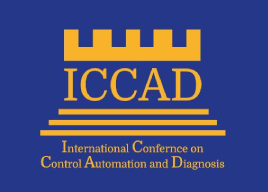

Copyright © ICCAD 2021

Prof. Tullio Antonio Maria Tolio
Politecnico di Milano – Italy
Tullio A.M. TOLIO is Full Professor of “Manufacturing and Production Systems” at Politecnico di Milano.Editor in Chief of the “CIRP Encyclopedia of Production Engineering”, President of AITEM (Italian Association for Manufacturing)and “Fellow” of CIRP (the International Academy for Production Engineering). Member of the HLG (High Level Group) of the MANUFUTURE Platform, served in the EU HLG on Key Enabling Technologies and is President of the ScientificTechnical Committee (CTS) of the Italian Cluster “Intelligent Factories” (CFI) and President of the CTS of the Lombardy cluster Intelligent Factories Lombardy (AFIL).
His research interests are in the area of configuration and reconfiguration of production systems, performance evaluation of production systems, circular economy, zero defect manufacturing. He is the author of two books and more than 170 publications on international journals and conferences. He has carried out research at the Laboratory for Manufacturing and productivity of the Massachusetts Institute of Technology (MIT).
During his career at Politecnico di Milano, he has covered the positions of: Head of the Ph.D. program in “Manufacturing and Production Systems”, Member of the Evaluation Board of the University, Delegate of the Rector of Politecnico di Milano on “Quality assurance in education”. He has been the Director of ITIA-CNR (Institute of Industrial Technologies and Automation of the National Research Council of Italy) in the period 2008-2018. In the period 2017-2019 he has been member of the National Habilitation Board of MUR (Italian Ministry of University and Research) for University professors in the area “Manufacturing and Production Systems”.
The road to the industrial intelligence revolution is paved by the development and evolution of system intelligence, often referred to as systelligence. It has two constituents, namely (i) synthetic system knowledge and (ii) application-specific computational mechanisms. The synthetic system knowledge (SSK) is partly pre-structured human knowledge processed by knowledge engineers, partly genuine system knowledge run-time acquired and inferred by reasoning and learning mechanisms. SSK is becoming abundant as the number and variety of intellectualized engineered systems is rapidly growing.
As part of systelligence, SSK is studied by sympérasmology, which has been proposed as the theory of synthetic system knowledge. The inquiry and analysis domains of sympérasmology have been sorted into four categories: (i) rudiments, (ii) principles, (iii) faculties, and (iv) implications.
Sympérasmology plays an important role not only in getting a better understanding of the teleology of SSK and deeper insights in its very nature and principles, but also in orientating industrial system developers how to construct and exploit the problem solving potential of SSK optimally and how to blend various bodies of system-specific SSK into an ampliative warehouse of synthetic system knowledge. As complement of gnoseology and epistemology, sympérasmology should be considered by systems scientists and philosophers, as well as by intelligence theoritians and knowledge engineers.

Prof. Dr. Imre Horváth
Delft University of Technology – Netherlands
Dr. Imre Horváth is emeritus professor of the Faculty of Industrial Design Engineering, Delft University of Technology, the Netherlands. His current research interests are in cognitive engineering of smart cyber-physical systems and in systematic design research. He published several seminal papers in both fields of interest.
He initiated the International Tools and Methods of Competitive Engineering Symposia. He is fellow of ASME, has honorary doctor titles, and received international awards for his contribution to science and engineering.
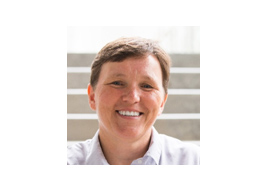
Prof. Peggy Zwolinski
University Grenoble Alpes – France
Peggy ZWOLINSKI receivedher M. Sc. Degree in Mechanical Engineering in 1995, and the Ph.D. degreefrom Lorraine University, in 1999. Her researchinterests lies in Integrated Design, Ecodesign, Life Cycle Engineering, End of Life strategies (remanufacturing, recycling, reuse) andCircularIndustrialSystems.
Sheisprofessor of engineering design and sustainable engineering at Univ. Grenoble Alpes since 1999. She has been head of the G-SCOP laboratoryresearch group on design for environmentfrom 2007 to 2015.
Peggy Zwolinskiisnowleading a large project ( https://circular.univ-grenoble-alpes.fr/ ) focused on creating an agile remanufacturing system aimed at streamlining the process of repurposingusedproductswithin the scope of circulareconomylaw.
ICCAD’21 will be held at the Polytech Grenoble of Grenoble University Alpes in Grenoble-France.

1-Take the tram line B, direction Gière-Plaine sports,
2-Get off at the station “Les Taillées-Universités”,
3-Take the tram line D, direction St Martin d’Hère-Etienne Grappe,
4-Get off at the station “Maison communale”
14 Place du Conseil National de la Résistance, 38400 Saint-Martin-d’Hères, France

What is included in the ICCAD’22 registration:
Full Registration (for senior participants) includes: Access to all technical sessions, panel sessions, coffee breaks, receptions, lunches and Banquet. It also includes a Welcome Kit.
Student registration includes: Access to all technical sessions, panel sessions, coffee breaks, receptions and lunches. It also includes a Welcome Kit.
1- At least one REGISTRATION must be made by authors to have the paper in the proceedings.
2- No more than one additional paper is allowed by one registration.
3- Papers with no registration will not be included in the proceeding. Proceedings of the Conference will be submitted for inclusion into IEEE Xplore.
4- This payment mode is made at the latest by May 25, 2022.
| Before May 25, 2022 | After May 25, 2022 | |
|---|---|---|
| Full registration (for senior participants) | 490 EUR | 590 EUR |
| Student registration | 380 EUR | 480 EUR |
| IEEE Member (for senior participants) | 470 EUR | 570 EUR |
| IEEE Student Member | 360 EUR | 460 EUR |
| Virtual Registration | 300 EUR | 400 EUR |
| Additional paper (max 1 paper) | 250 EUR | 250 EUR |
| Banquet ticket (for ALL no senior participants) | 70 EUR | 70 EUR |

Copyright © ICCAD 2023
Today with new technologies and thanks to the generalization of connected sensors, we can access, for a given object, a plethora of information of different kinds in the form of a flow. The question arises of their use, their influence on each other and their synthesis to meet given objectives. For industrial equipment, it is essential to propose a strategy for evaluating energy consumption, a maintenance policy to be applied as well as a self-diagnosis to avoid a production stoppage and protect the environment. In the developments of Industry 4.0, data becomes more and more important but also complex.
They can contribute to decision support on the state of health of a product with a view to possible remanufacturing. This is where you have to make the right decision in a context of sustainable development. Concerning the use of the data thus classified for self-diagnosis, self-prognosis, it will be a question of developing methods of exploitation of the envelopes of normal operation and of evaluating the degree of criticality of the degradation compared to data real-time recorded.
The establishment of a Maintenance Workshop in a company greatly contributes to the minimization of inevitable maintenance costs. Beyond the initial investment, a maintenance workshop when it is well organized in terms of the layout of the various treatment and repair stations and the sizing of the spare parts storage areas, allows, thanks to the pooling of skills and means of minimizing the residence time of materials in the workshop. In addition, it allows the reuse of components in good working order. It is in this context that maintenance contributes greatly to sustainable development. Different axes will be dealt with during this plenary.

Zineb SIMEU-ABAZI
Professor at University of Grenoble
Alpes, Grenoble-France.
Zineb SIMEU-ABAZI is Professor at the Polytech Grenoble in the University Grenoble Alpes where she teaches control processing, Automation and Industrial Engineering, dependability and Industrial Maintenance. She holds a Ph.D. in Computer Science and Automation at the Institut National Polytechnique de Grenoble, INPG France on 1987 and an «Habilitation à Diriger des Recherches» HDR in 1998, from Grenoble University, France.
She works on modelling, control and evaluation of dependability in the manufacturing systems. She is particularly interested in the on-line maintenance, diagnostic, recycling and performance evaluation fields. In relation to these topics she took scientific responsibility of French and International projects/groups on e-maintenance.
The presence of overabundant control inputs, namely, more control inputs than regulated outputs, is a rather common feature in control systems, which is likely to appear more and more often in current and future applications. Actually, if redundant actuators have been classically adopted in safety or mission critical control tasks, the ongoing trend to develop multi-agent, distributed systems (e.g. in collaborative robotic manipulation or multi-drone patrolling, surveillance and rescue) naturally yields systems characterized by a large number of cooperating actuation units, which need suitable orchestration to achieve their overall goal.
The classic approach to deal with this phenomenon has been based on the goal of surviving “input redundancy”, by either “squaring down” the system (e.g. ignoring some inputs) or letting LQR/MPC take care of it through a monolithic, often opaque controller design. On the other hand, achieving high performance, robustness and flexibility in the mentioned novel applications calls for adaptable solutions which can be possibly retrofitted or combined with underlying “baseline” or “low level” controllers and reconfigured online in a transparent fashion.
This talk presents Dynamic Control Allocation (DCA) as a general plug-in architecture to effectively address the above issues, transforming the “problem” of input redundancy into a powerful “feature” of input richness, and the key to enhanced performance in advanced applications. The presentation will comment on some successful applications and will provide a (personal) perspective on the development of DCA, the key underlying ideas and structure and the main robustness and performance issues underlying current and future research.
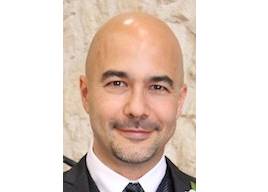
Sergio Galeani
University of Rome Tor Vergata, Italy
Sergio Galeani was born in Rome on May 26, 1973. He graduated in Computer Engineering in 1998 and received his PhD in Computer and Automation Engineering in 2002, both from the University of Rome, Tor Vergata, where he is currently an associate professor at the Department of Civil Engineering and Computer Engineering.
His main research interests include the periodic, multi-rate and robust control of linear systems in the presence of constraints, analysis and synthesis of nonlinear control systems, optimal control and the design of anti-windup compensators. His most recent work has focused on the development of novel dynamic control allocation strategies with advanced features in terms of dynamic optimization, robustness and data-driven design.
Dr. Galeani has published over 150 papers in peer reviewed journals and conference proceedings, and has served as a reviewer and associate editor in several committees; currently, he is an Associate Editor for the IEEE Transactions on Automatic Control and IEEE Transactions on Control Systems Technology, a member of the Conference Editorial Board of the IEEE Control Systems Society and Chair of the IFAC Technical Committee 2.1 (Control Design).
Near-Earth Objects (NEO) are the topic of several research studies, with objects smaller than 1km in size posing the most threats and being the less understood of this scientific domain. The Asteroid Impact and Deflection Assessment (AIDA) mission involves NASA and ESA with the main mission goal to perform and analyze the asteroid deflection using the Kinetic Impactor technique.
The mission target is Didymos-B, a moon of a binary asteroid called Didymos. NASA oversees the Double Asteroid Redirection Test (DART probe), and ESA is responsible for HERA probe, that will measure the Dydimos-B deflection caused by the impact.
The Light Detection and Ranging (LIDAR), the Radar, the Satellite-to-Satellite Doppler tracking, the Seismometer, and the Gravimeter are instruments integrated into HERA spacecraft. Information synergy between the instruments allows the detailed characterization of the asteroid including internal structure. This communication focusses the challenges of developing the LIDAR for the HERA probe.
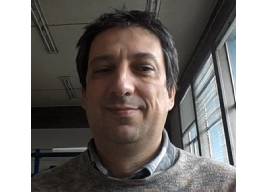
Paulo Gordo
Researcher at Faculty of Sciences – University of Lisbon
CENTRA research center , CEO at: Synopsis Planet, Portugal
Paulo Gordo was born in Lisbon in 1973. He has worked in the space sector for about 20 years, as a researcher in academy and as optical engineer, project Manager in space industry. He has worked in space multidisciplinary topics covering optics, materials, instrumentation, and space safety. He took a master’s degree o Physics engendering at Faculty of sciences and technology (FCT-UNL) in 1999, afterword’s started to work in research projects in the field of the sputtering and optics, and then followed to PhD.
By 2005 he ended the PhD in Physics engineer covering plasmas cold discharge spectroscopy and thin films. After PhD he went to space industry for 8 years working in space optics (free space optical communications, OGSE for GAIA and S3) and photonics (radiation hard optical fiber amplifiers) and eventually as project manager.
In 2013 he went back to academy (Faculty of Science – University of Lisbon; FCUL) to work on GRAVITY ESO project (IR- multitelescope interferometer). He continued to work in space industry, OMNIDEA, in the fields of satellites propulsion until 2020.
in 2020 he created a Startup, Synopsis Planet, that offer optical engineer services to the space sector. Also, currently as researcher (FCUL) he is: 1) PI of LIDAR instrument of HERA mission and participates in the science team; 2) he is PI of the participant entity FCUL, in H2020 NEO-MAPP (Advanced research in Near Earth Objects (NEOs) and new payload technologies for planetary defence).
Since the early 90s, we have proposed several generations of the CRONE methodology to design robust fractional order based feedback control-systems. The first defines a PID controller whose derivative part is of fractional order and which is particularly effective for systems with uncertain gain. The third generation of CRONE was developed to control systems with different uncertainty models (gain and phase). It uses complex fractional integration order and makes possible to design optimal and robust feedback controllers. The SISO third CRONE control methodology has been extended to MIMO systems.
Since 2016, we have been developing a methodology to design control systems that guarantee both optimal and robust tracking and regulation modes of operation. After an initial robustness analysis of linear MPC (Model Predictive Control), we chose to combine a fractional robust feedback controller with a model-based predictive feedforward controller that includes an optimized preview FIR filter.
After an extension to linear MIMO systems, industrial applications pushed us to focus on nonlinear systems. We now propose a control scheme based on a feedforward NMPC (nonlinear MPC) that cooperates with a linear robust feedback controller. This strategy has been evaluated to control several SISO and MIMO nonlinear systems that will be presented.
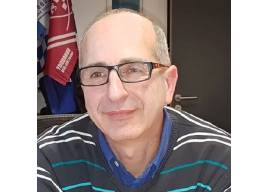
Patrick Lanusse
University of Bordeaux, France
Patrick Lanusse was born in Bordeaux, France, on January 12, 1966. Since 1990, he has been part of the CRONE team of the IMS laboratory (Bordeaux Institute of Technology, CNRS and University of Bordeaux) where he works on Robust Control, Fractional Order Controllers and more specifically on CRONE Control. He got his PhD degree in 1994 on the use of a complex order fractional operator to design robust control systems. Since 1995, he has been an associate professor of control theory and obtained his Habilitation in 2018.
His research focuses on CRONE control to increase performance without decreasing robustness. He developed the CRONE control system design toolbox for Matlab which has been free to download since 2010. Through the supervision of PhD students, he has collaborated with many industrial companies. Today, he works particularly on the development of methodologies to design preview and optimal control systems.
Currently, his focus is on combining robust feedback systems and model predictive algorithms. He is the author or co-author of more than 25 journal articles, 8 international patents, about 100 international conference papers, he has collaborated on 15 books and has also organized several special sessions on fractional systems in international conferences.

Copyright © ICCAD 2023
What is included in the ICCAD’23 registration:
Full Registration (for senior participants) includes: Access to all technical sessions, panel sessions, coffee breaks, receptions, lunches and Banquet. It also includes a Welcome Kit.
Student registration includes: Access to all technical sessions, panel sessions, coffee breaks, receptions and lunches. It also includes a Welcome Kit.
1- At least one REGISTRATION must be made by authors to have the paper in the proceedings.
2- No more than one additional paper is allowed by one registration.
3- Papers with no registration will not be included in the proceeding. Proceedings of the Conference will be submitted for inclusion into IEEE Xplore.
4- This payment mode is made at the latest by March 31, 2023.
| Before March 31, 2023 | After March 31, 2023 | |
|---|---|---|
| Full registration (for senior participants) | 490 EUR | 590 EUR |
| Student registration | 380 EUR | 480 EUR |
| IEEE Member (for senior participants) | 470 EUR | 570 EUR |
| IEEE Student Member | 360 EUR | 460 EUR |
| Virtual Registration | 350 EUR | 450 EUR |
| Additional paper (max 1 paper) | 300 EUR | 300 EUR |
| Banquet ticket (for ALL no senior participants) | 70 EUR | 70 EUR |
ICCAD’23 will be held in Rome-Italy. Rome is the capital of Italy and also serves as the capital of the Lazio region. With 2,876,051 residents in 1,285 km2 (496.1 sq mi), it is also the country’s most populated comune. It is the fourth-most populous city in the European Union by population within city limits. It is the centre of the Metropolitan City of Rome, which has a population of 4.3 million residents. Rome is located in the central-western portion of the Italian Peninsula, within Lazio (Latium), along the shores of the Tiber. The Vatican City is an independent country inside the city boundaries of Rome, the only existing example of a country within a city: for this reason Rome has been often defined as capital of two states.
Rome’s history spans 28 centuries. While Roman mythology dates the founding of Rome at around 753 BC, the site has been inhabited for much longer, making it one of the oldest continuously occupied sites in Europe. The city’s early population originated from a mix of Latins, Etruscans and Sabines. Eventually, the city successively became the capital of the Roman Kingdom, the Roman Republic and the Roman Empire, and is regarded as the birthplace of Western civilisation and by some as the first ever metropolis. It was first called The Eternal City (Latin: Urbs Aeterna; Italian: La Città Eterna) by the Roman poet Tibullus in the 1st century BC, and the expression was also taken up by Ovid, Virgil, and Livy. Rome is also called the “Caput Mundi” (Capital of the World).
Today Rome has the status of a global city: Ranking in 2016 as the 14th-most-visited city in the world, 3rd most visited in the European Union, and the most popular tourist attraction in Italy. Its historic centre is listed by UNESCO as a World Heritage Site. Monuments and museums such as the Vatican Museums and the Colosseum are among the world’s most visited tourist destinations with both locations receiving millions of tourists a year. Rome hosted the 1960 Summer Olympics and is the seat of United Nations’ Food and Agriculture Organization (FAO).
The city hosts the headquarters of many international business companies, such as Eni, Enel, TIM and national and international banks such as Unicredit and BNL. Its business district, called EUR, is the base of many companies involved in the oil industry, the pharmaceutical industry and financial services. Rome is also an important fashion and design centre thanks to international brands such as Fendi, Bulgari, Renato Balestra, Valentino, Laura Biagiotti. Rome’s Cinecittà Studios have been the set of many Academy Award–winning movies.
The Campus of Tor Vergata University is about 40 minutes tube ride from the historical city centre of the “Eternal City” Rome and 20 minutes far from the peaceful Castelli Romani area, notorious for its vineyards and hillside landscape. Tor Vergata’s six Schools (Economics, Engineering, Humanities and Philosophy, Law, Medicine and Surgery, and Mathematics, Physics and Natural Sciences) are located in a vast 600-hectare campus. Each School is provided with its own library, teaching and research facilities, reading rooms, laboratories, canteens and green areas where students can experience a real campus life.
Reach Tor Vergata University of Rome School of Engineering by train, metro and bus.
MAIN DIRECTIONS: Tor Vergata School of Engineering can be reached directly by ATAC bus and by the Bus SHUTTLE. For info on how to reach Tor Vergata’s School of Engineering please click on “Directions” in the Google Maps frame below.
BUS SHUTTLE : Tor Vergata University’s dedicated Bus Shuttle Service passes through all three main stations:
– Tor Vergata Train Station
– Metro A Anagnina
– Metro C Torre Angela.
Macroarea di Ingegneria
Via del Politecnico 1, 00133 Roma
This talk will present the stakes of flow management in the health domain, as well as the specificities of healthcare production systems compared to manufacturing systems.
We will see some examples of work, carried out in the G-SCOP laboratory, showing the contribution of engineering sciences, and more particularly of industrial engineering, for the study and the improvement of the organization of various healthcare production systems. This talk will thus show how modeling, performance evaluation, mathematical optimization, and risk analysis can contribute to making the management of healthcare production systems more efficient.

Maria Di Mascolo
French National Center for Scientific Research
Maria Di Mascolo, is Senior Researcher at the CNRS (French National Center for Scientific Research), and a member of the G-SCOP (Grenoble-Sciences for Design, Optimization and Production) laboratory. Her main scientific interests are related to the modelling, analysis and optimization of systems for the production of goods and services, and in particular healthcare production systems.
Her objective is to develop methods and tools to assist in making decisions that guarantee a good performance to production systems, despite uncertainties. The decisions to be made concern the design of production systems (including the control or maintenance policies to be implemented), as well as the planning of activities to be carried out, or the management of flows, with a special interest in the sustainability and human aspects.
She co-leads the GISEH (Hospital Systems Management and Engineering) technical committee of the SAGIP (French Society of Automatic Control, Industrial and Systems Engineering), and is editor-in-chief of the ISTE OpenScience journal “Industrial and Systems Engineering“. She is Deputy Head of Sustainable Industrial Engineering Master’s degree at Grenoble Institute of Technology.
During the last two decades, power electronic converters have become key enabling technology in very important areas, such as renewable energy and distributed generation, smart grids, transportation, industry, consumer electronics etc.
Power electronics converters are required to fullfil many demanding tasks, but all of them share some basic requirements, including the optimization of energy conversion, high flexibility and low cost, according to the concept of life cycle assessment (LCA). Multilevel Converters (MLC), early proposed for high power, high voltage applications, are gaining popularity and applications at all power levels demonstrating unusual flexibility even at low power. One key point in multilevel converters, is their ability to reduce the harmonic content affecting their input/output currents and voltages.
Their modulation patterns are very often imposed by algorithms consisting of preliminary off-line computations and subsequent real-time application of the precalculated patterns through look up tables. These approaches need large amount of memory space, can reduce precision of commutation angles and are not very flexible in closed loop operations. Analytical methods, instead, offer significant advances: exact problem formulation, easy and effective real-time implementation, capability of selective harmonic elimination or mitigation, possibility to cascade the modulator with the outer control loops. During the speech, after an introduction, some analitycal methods for modulation of MLC will be introduced and discusse in detail, hence, some examples of practical implementation will be reported.

Prof. Carlo Cecati
University of L’Aquila, Italy
Carlo Cecati (Fellow, IEEE) (M’90-SM’03’-F’06) received the Dr. Ing. Degree in Electrotechnical Engineering from the University of L’Aquila, L’Aquila, in 1983. Since then, he has been with the same university where he is a Professor of Industrial Electronics and Drives since 2006. From 2015 to 2017, he has been a Qianren Talents Professor with the Harbin Institute of Technology, Harbin, China.
His primarily research interests include power electronics, distributed generation, e-transportation and smart grids. Prof. Cecati has been Co-Editor-in-Chief (2010-2012) and Editor-in-Chief (2013-2015) of the IEEE TRANSACTIONS ON INDUSTRIAL ELECTRONICS. He has been a corecipient of the 2012 and the 2013 Best Paper Award from the IEEE TRANSACTIONS ON INDUSTRIAL INFORMATICS, of the 2012 Best Paper Award from the IEEE INDUSTRIAL ELECTRONICS MAGAZINE and of the 2019 Outstanding Paper Award from the IEEE TRANSACTIONS ON INDUSTRIAL ELECTRONICS.
In 2017 he received the Antony J. Hornfeck Award from the IEEE Industrial Electronics Society, in 2019 received the title of “Commander of the Republic of Italy” from the President of the Republic of Italy, in 2021 he received the Eugene Mittlemann Achievement Award from the IEEE. He is Chief Technical Officer at DigiPower Ltd., a R&D company active in the field of power electronics.
Set-valued sliding-mode control and differentiation, usually suffer from the well-known chattering phenomenon, which deteriorates their performance and can even sometimes prevent their use. It is known that one important source of chattering (at both the output and the input, which takes a bang-bang-like shape) is an inappropriate discretization, which yields the so-called digital, or numerical chattering.
The explicit Euler discretization, which is widely employed, is known to be the source of numerical chattering (see the works of Galias et al). Recently it has been shown that the implicit Euler discretization yields very efficient algorithms to suppress the numerical chattering, while keeping all the nice and powerful properties of the continuous-time counterparts: rigorous definition of a discrete sliding surface, finite-time convergence, robustness to matched (and some unmatched) disturbances, Lyapunov stability, insensitivity to the control gain during the sliding-motion. Several experimental results have validated the theoretical findings. In this talk we will introduce the implicit Euler method on several kinds of systems (linear, Lagrange mechanical, with matched or unmatched disturbances) and several kinds of SMC controllers (first-order, twisting, super-twisting, high-order) as well as differentiators. Most importantly it will be shown the deep link between the implicit discretization and maximal monotone operators, the Yosida approximations of Convex Analysis and the so-called proximal algorithms, which shows that the implicit discretization is not an implementation trick, but a discretization method.
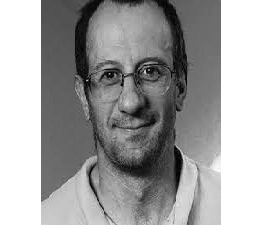
Bernard Brogliato
Inria Grenoble-Rhône-Alpes Research Centre
Bernard Brogliato was born in Saint- Symphorien-de-Lay, France, in 1963. He received the Agrégation de mécanique from the Ecole Normale Supérieure de Cachan, Cachan, France, in 1986, and the Ph.D. and Habilitation à Diriger des Recherches degrees in automatic control from Grenoble INP, Grenoble, France, in 1991 and 1995, respectively. From 1991 to 2001, he was with Centre national de la recherche scientifique, Grenoble, France. Since 2001, he has been with Inria Grenoble Rhône-Alpes, Montbonnot-Saint-Martin, France. His main research interests include nonsmooth dynamical systems analysis, control and modeling, and dissipative dynamical systems.
The development of inexpensive and fast computers, coupled with the discovery of efficient algorithms for dealing with polynomial equations, gave rise to some exciting new applications of algebraic geometry and commutative algebra. One of the main goals of this talk is to show how some tools borrowed from these two fields can be efficiently employed to solve relevant control problem.
After a brief introduction to some algebraic objects and techniques, it is shown how such tools and methodologies can be applied to a wide variety of topics concerning control theory and its application, such as the design of observers for nonlinear plants, the motion planning of mobile robots, the inverse kinematics of robot manipulators, the characterization of invariant sets for nonlinear systems, and the decomposition of a polynomial in sum of squares.

Corrado Possieri
Department of Civil Engineering and Computer Engineering
of the University of Rome “Tor Vergata”, Rome – Italy
Corrado Possieri received the bachelor’s and master’s degrees in medical engineering from Università di Roma “Tor Vergata” in 2011 and 2013, respectively. He received the Ph.D. degree in Computer Science, Control, and Geoinformation from Università di Roma “Tor Vergata” in 2016. During his Ph.D., he visited the University of California, Santa Barbara as a Research Scholar. In 2018, he joined the Dipartimento di Elettronica e Telecomunicazioni of the Politecnico di Torino where he was an Assistant Professor. In 2019, he joined the Istituto di Analisi dei Sistemi ed Informatica “A. Ruberti” of the National Research Council of Italy, where he was a Researcher. In 2022, he joined the Dipartimento di Ingegneria Civile e Ingegneria Informatica of the Universita` di Roma “Tor Vergata”, where he is currently an Assistant Professor.
He is the author of more than 110 scientific papers published in peer reviewed journals and conference proceedings, of a book, and of an international patent. He served as Vice-Chair on Social Media of the Technical Committee on Control Design of the International Federation of Automatic Control, as a member of the organizing committee of several international conferences, and as Associate Editor for PLoS One.
His research interests include the design of reinforcement learning algorithm, the application of symbolic computation to control theory, and the design of observers for nonlinear systems.
Differential games have been studied for decades and have played, and continue to play, an important role in control engineering and decision processes. In this talk some basics on differential games, their relation to optimal control and their relevance to “classical” control engineering problems are briefly recalled. Then, starting with linear quadratic differential games, some of the “peculiarities” of differential games (or dynamic games, as they are referred to in the discrete-time setting) are discussed and various strategies to obtain their solution – via model-based or data-driven algorithms – are presented.
Turning then to a more general class of nonlinear differential games, strategies to obtain their solutions (or approximations thereof) are discussed. Various case studies are considered, with a particular emphasis on applications to robotic systems including, for instance, the multi-agent collision avoidance problem. Finally, the relevance of differential games to current challenges in distributed control are briefly discussed.

Thulasi Mylvaganam
Faculty of Engineering, Department of Aeronautics,
Imperial College, London – United Kingdom
Thulasi Mylvaganam was born in Bergen, Norway, in 1988. She received the M.Eng. degree in Electrical and Electronic Engineering and the Ph.D. degree in nonlinear control and differential games from the Department of Electrical and Electronic Engineering, Imperial College London, U.K., in 2010 and 2014, respectively. From 2014 to 2016, she was a Research Associate in the same department. From 2016 to 2017, she was a Research Fellow with the Department of Aeronautics, Imperial College London, UK, where she is currently a Senior Lecturer (Associate Professor). Her research interests include nonlinear control, dynamic optimisation, distributed control and data-driven control. While her research is mainly focused about fundamental aspects of control engineering, since joining the Department of Aeronautics, she has gained a special interest in its applications to robotics. She a Senior Member of the IEEE, a Member of the IEEE CSS Conference Editorial Board, of the EUCA Conference Editorial Board and a Member of the IFAC Technical Committee 2.4 (Design Methods – Optimal Control). She has served as Associate Editor for several conferences, including the IEEE Conference on Decision and Control, the IFAC World Congress, the American Control Conference, the European Control Conference and the IFAC Workshop on Control Applications of Optimization. She was Financial Chair for the 2022 European Control Conference.